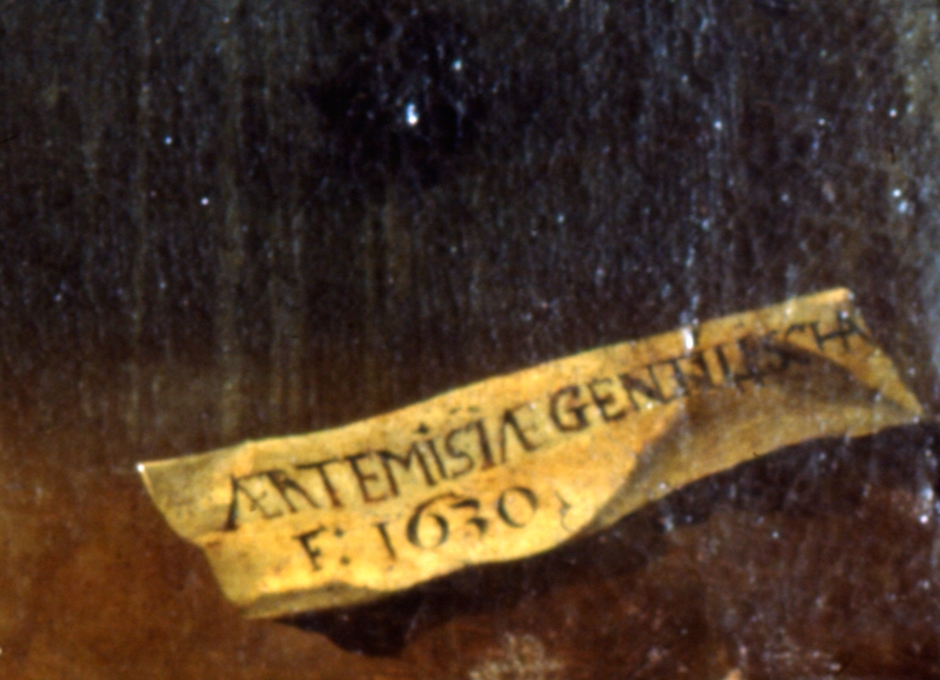more about Artemisia

Born July 8, 1593 in Rome, Artemisia Gentileschi was taught to paint by her father Orazio, a noted colleague of Caravaggio. Her first known signed painting is her Susanna and the Elders, dated 1610, when she was seventeen. In 1611 a colleague of Orazio's, Agostino Tassi, raped Artemisia and then promised to marry her. Based on these promises the sexual relationship continued. Orazio went to court when he found that Tassi was already married. At the trial in 1612, Artemisia testified under torture by thumbscrews. Tassi was convicted and sentenced to exile from Rome, but never served the sentence. Within a month, Artemisia was married off to another painter and moved to Florence. The marriage failed and Artemisia forged a career as an artist. Befriended by Galileo and Michelangelo's grandnephew, the Medici became her patrons - impressive considering at the trial she testified she “could only read a little and could not write.” She was the first woman admitted to the Accademia del Designo in Florence and became known for large, dramatic paintings featuring female heroes from the old testament, history and mythology. She gave birth to five children (only two survived past childhood) worked in Rome, Naples, Venice and London, was a single, working mother who struggled to make a living as an artist. It is thought that she died in Naples, in 1653 or 1654. Although she was famous in her time, she was excluded from history books until rediscovered by Roberto Longhi in 1916. Today, approximately forty paintings can be attributed to Artemisia. Surviving evidence includes the original transcript of the trial and a few of her vibrant letters to patrons demanding payment and respect. Recently new letters, including love letters to a patron have been discovered. There are novels, plays and films about Artemisia - she is now recognized as a leading artist of the Italian Baroque. Her paintings present women as active heroes in their own stories – a difference in conventional storytelling in 1650 as it is today.
